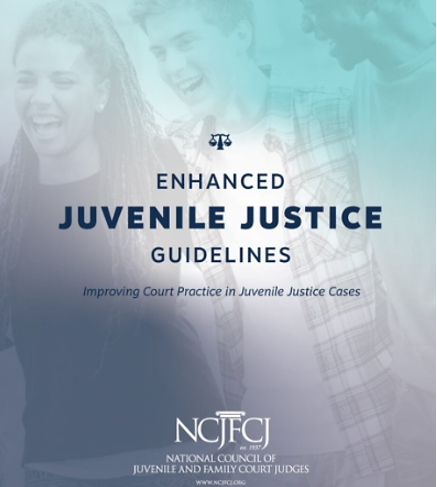What works with youth involved in the juvenile justice system? This is a question that has research pointing to some clear answers. Wrap-around services, a focus on youth skill development, and a well-coordinated case plan are all keys to helping youth successfully exit the justice system and become better citizens of their communities.
But even though we have a lot of research pointing to what works, it can sometimes be challenging to bridge the gap between theory and practice. Demonstration sites serve as a test laboratory to understand how research can inform practice. The Enhanced Juvenile Justice Guidelines (EJJG) project of the National Council of Juvenile and Family Court Judges (NCJFCJ) currently has six jurisdictions that are serving this critical role. These sites are:
- Cobb County, Georgia
- Davidson County, Tennessee
- Hamilton County, Ohio
- Lane County, Oregon
- Paw Paw County, Michigan
- Washington County, Maryland
These juvenile courts are working to incorporate research into their practice on topics ranging from using screening and assessment instruments to match youth to services; improving stakeholder collaborations; increasing school/justice communication to interrupt school pathways to the justice system; and using data to reduce disproportionality. As these courts undertake these important system reforms, the NCJFCJ provides them with training and technical assistance. In addition, NCJFCJ uses the lessons learned to create new tools, resources, and trainings so that other courts across the country can learn from the important work of the demonstration sites.
For more information about the EJJG project please contact Jessica Pearce at jpearce@ncjfcj.org.


